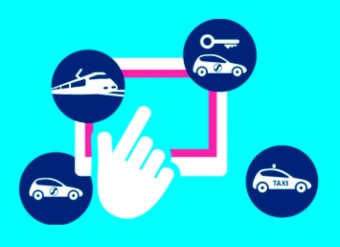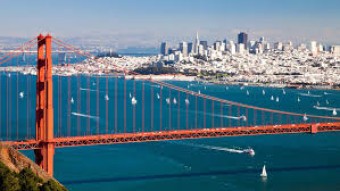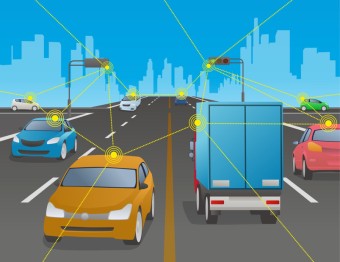Visa says we’re about to see a huge jump in international travel
The boom in global travel is driving a huge increase in new tourism infrastructure development, which will make access easier and more affordable to more destinations, especially in emerging markets. But we will point out that the China and Russia numbers feel especially optimistic.
More than 280 million households globally will make at least one international trip per year by 2025, which represents a 35% increase over 2015 figures.
That’s according to a new study published this week by Visa, in conjunction with Oxford Economics. Visa sees about 25 cents of every U.S. retail dollar spent around the world.
Two factors are driving the exponential jump in international travel.
First, the rise of the middle class worldwide is creating new demand in countries where travel was once the privilege of only the elite. Visa is labeling these new consumers as the ‘Traveling Class’ because travel is becoming more and more a lifestyle necessity for them, especially for younger generations. The report states: “Nearly half of all households globally (945 million) will belong to the traveling class by 2025,” adding that half of those will be in what are deemed emerging markets today.
Second, advances in technology and heightened competition in the global tourism marketplace are making international travel more affordable in more markets.
As expected, China tops the list of the 10 countries spending the most on outbound travel, and it also shows the highest increase in total spend projected over the next 10 years, as well. In 2015, Chinese travelers purchased $137 billion worth of travel. That number is expected to reach $255 billion by 2025 — a whopping 86% increase. “As households rise into the middle class, there’s also an uptake of new technology that’s fueling an uptake into new services, which makes it easier than ever before for people to see the world’s travel icons,” said Richard Lung, an economist and senior director with Visa International. “One thing we’re finding that’s interesting, households are not only traveling more, they’re spending more, too.”
By 2025, Visa predicts that average spend for international travel will top $5,300 per household annually in 2015 U.S. dollars. As a result of such a massive increase in worldwide travel, global tourism infrastructure is expanding at an unprecedented rate. Visa reports that somewhere around 340 new airports will come online over the next decade, ostensibly making it easier, faster, and more affordable for people to access more destinations.
Naturally, major economic shocks in the world’s biggest source markets last year are having an uneven dampening effect on international travel. China’s stock market tanked; Russia was hard hit by a steep drop in oil prices; and Brazil is mired in a deep recession. However, while Russian outbound travel dropped 26% and Brazil saw a fall-off of 14% in 2015, Chinese international travel actually increased a few percentage points from an average of 46.6 million trips during the period of 2009-2014 to almost 50 million in 2015.
Lastly, the average age of global travel consumers is moving sharply upward. People over 65 years-old will account for roughly 13% of all international travel by 2015, and part of that will be spurred by demand growth in the medical, health, and wellness tourism sector. “Only a few years ago, medical tourism was a blip in overall global tourism spending,” reads the report. “Today, it’s a multi-billion dollar industry that is expected to increase by up to 25% per year over the next 10 years.”
Today, the U.S. is the single largest hub for medical tourism, according to cross-border spending data captured by Visa, although “Thailand, Singapore, Germany, Korea, and Spain are quickly catching up.”
- Medical tourism is expected to grow 25% per year globally over the next 10 years, says Visa.









